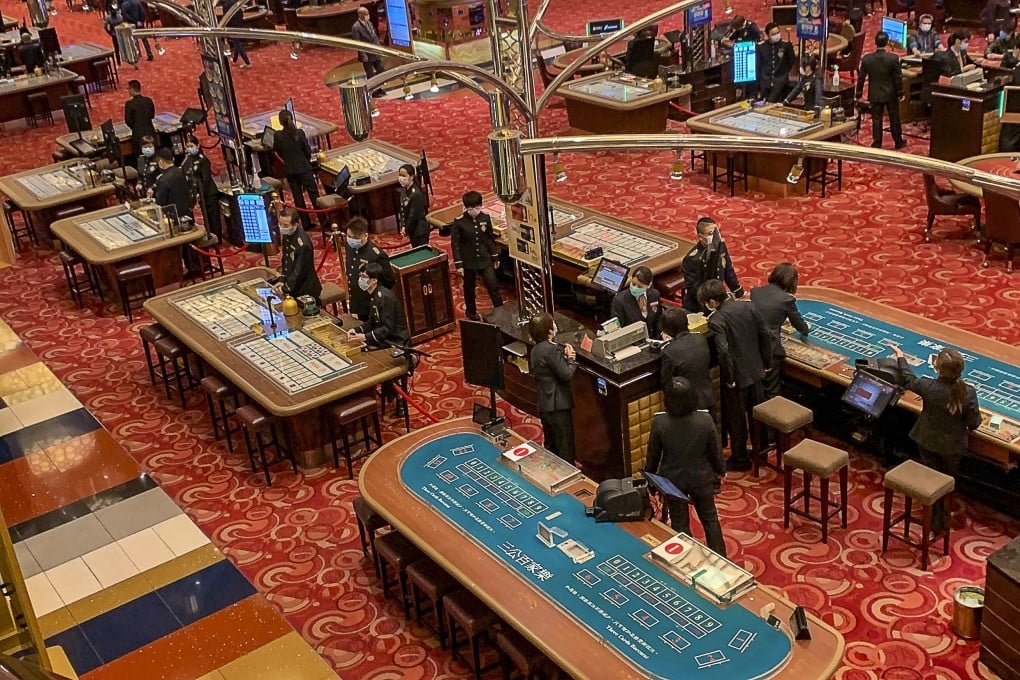Advertisement
Macau puts casinos in the cross hairs to stem capital flows and tighten daily operations, sending stocks into a tailspin
- Macau is soliciting public feedback through October 29 on how the gambling sector, which contributes to 80 per cent of tax receipts, should be overhauled
- The public are being asked for feedback on rules including state oversight, remittances of dividends, and a plan to slash the number of gambling tables
Reading Time:3 minutes
Why you can trust SCMP
2

Macau’s authorities will solicit public opinion to overhaul the city’s gambling laws, sending the shares of casino operators plunging in a US$17 billion wipeout, as the proposed revisions portend heightened scrutiny of capital flows and daily operations.
The 45-day consultation will ask the public to give their feedback on a raft of rules including additional government oversight, permission for the remittances of dividends, and a proposal to slash the number of gambling tables. JPMorgan Chase slashed its ratings today on six casino operators to either “neutral” or “sell”, reversing its “overweight” call made as recently as July 20, citing investors’ doubt about the industry’s outlook amid the regulatory curbs.
“The government is doing things for the future because the industry is so important to the government and the people of Macau,” said Allan Zeman, the non-executive chairman of Wynn Macau Limited, a subsidiary of Wynn Resorts founded by the Las Vegas casino magnate Steve Wynn. “Analysts always have concerns, that is their job. For casino operators, they have to change the way they do the business, but in the long term, it will be very healthy for the businesses.”
Advertisement
The consultation, released a day after the city’s second Five Year Development Plan, is likely to translate into a new gambling law, most likely coming into effect before Macau’s six casino concessions expire in June 2022. The six licenses that require renewals are Sands China, Wynn Macau, Galaxy Entertainment, SJM Holdings, Melco Entertainment and MGM China.
Sands China’s shares led the carnage, plunging by 33 per cent while Wynn Macau tumbled 29 per cent. Shares of Galaxy dropped 20 per cent, while MGM China retreated by 26.8 per cent. SJM fell 24 per cent while Melco declined by 20 per cent.
Advertisement

Advertisement
Select Voice
Select Speed
1.00x